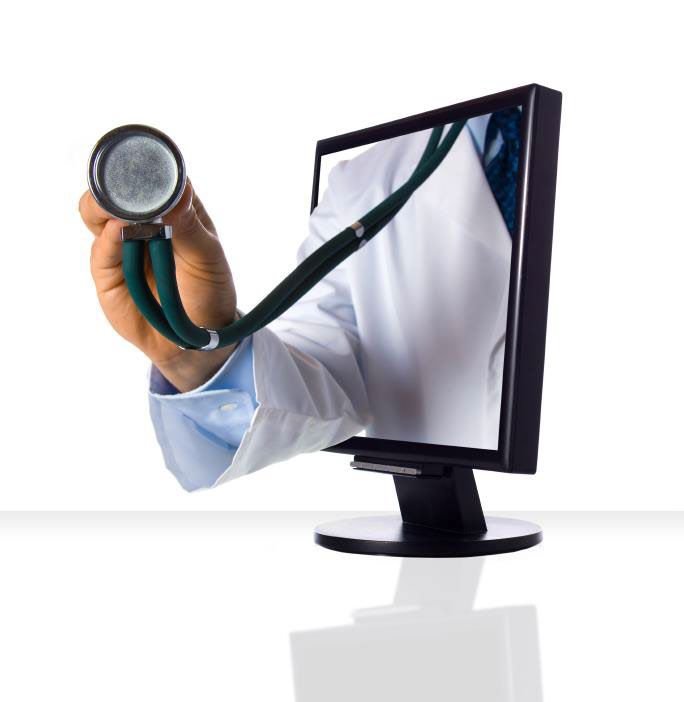
Online Medicine
As
a leading technology company, GTS is actively involved in the development and
implementation of various forward-looking projects in different sectors. One of
the most important areas GTS has focused on is digital health solutions and
telemedicine. With technological advancements and the increasing adoption of
digital platforms, the healthcare industry is undergoing a transformation, and
GTS is one of the pioneers of this change. In this report, we explore the
economic development potential of GTS’s digital health solutions and
telemedicine projects, which aim to revolutionize patient examinations,
diagnoses, and prescription delivery.
Digital
patient examination and treatment:
GTS’s
digital health solutions enable routine patient examinations and treatments in
digital form, eliminating the need for physical visits to healthcare
facilities. Through online platforms, patients can have virtual consultations
with physicians who can perform preliminary examinations and provide necessary
medical advice. This approach has several potential benefits for economic
development. First, it can reduce the burden on healthcare facilities,
especially in remote areas or regions with limited access to healthcare
services. Virtual consultations can help reach patients who do not have easy
access to health facilities, improving health equity and reducing health
inequities.
In
addition, digital patient examination and treatment can also optimize the use
of healthcare resources. By using telemedicine, physicians can consult more
patients within a given time frame, reducing wait times and increasing overall
patient throughput. This can lead to better patient satisfaction and increased
efficiency in the delivery of healthcare services. In addition, digital exams
can save patients transportation costs, time and effort associated with
physical visits, resulting in potential cost savings for patients and their families.
Regional
Automated Labs:
GTS
telemedicine projects include the distribution of regional automated labs
connected to central data centers via 5G technology. These labs can receive
standard blood, saliva, stool and urine samples from patients, analyze them and
provide medical staff with the necessary information and diagnosis. This
approach can significantly streamline the diagnostic process and enable faster
and more accurate diagnoses, resulting in more timely and appropriate treatment
plans for patients.
The
economic development potential of regional automated laboratories is immense.
First, they can reduce the need for patients to travel to healthcare facilities
for diagnostic testing, especially for patients in remote areas or with limited
mobility. This can help improve access to diagnostics and reduce health care
disparities. In addition, faster and more accurate diagnoses can help patients
receive appropriate treatment plans sooner, leading to better health outcomes
and potentially reducing the need for costly and time-consuming follow-up
testing.
In
addition, regional automated laboratories can also provide economic
opportunities in terms of job creation and local economic development. Skilled
health professionals are needed to set up and maintain these laboratories for
sample collection, analysis, and data management. This can create employment
opportunities in local communities, contributing to economic growth and
development.
Pharmaceutical
logistics and prescription delivery:
GTS
digital health solutions also include the use of pharmaceutical logistics
centers and drones for prescription delivery. Physicians can write
prescriptions to these logistics centers, which can then dispatch medication
drones to automatically deliver the drugs to patients. This approach may have
significant economic development potential as it improves the efficiency and
effectiveness of medication delivery.
Pharmaceutical
logistics centers and drones can streamline prescription delivery and make it
more efficient. It can reduce the need for patients to visit a pharmacy,
especially for patients with limited mobility or in remote areas. This can
improve patient adherence and compliance, leading to better health outcomes and
potentially reducing the need for costly hospitalizations or emergency room
visits. In addition, drones can be used to deliver medications quickly and
accurately, reducing medication delivery delays and ensuring that patients have
timely access to the medications they need.
The economic development potential of pharmaceutical logistics and
prescription delivery is multifaceted. First, it can contribute to cost savings
for patients and healthcare systems. By eliminating the need for patients to
drive to the pharmacy, it can reduce transportation costs for patients and
reduce healthcare costs associated with medication nonadherence or delayed
medication dispensing. In addition, more efficient delivery of prescriptions
can reduce the burden on health care facilities and free up resources for other
critical health care services.
In addition, the use of drones for prescription delivery can create new
opportunities for technological advances and innovation. Skilled workers are
needed to develop, deploy, and maintain drone systems, creating jobs in the
technology and logistics industries. This can spur economic growth and
development, especially in regions where drone technology is actively deployed.
GTS’s digital health solutions and telemedicine projects have
significant economic development potential. Through digital patient exams,
regional automated laboratories, and pharmaceutical logistics, GTS is
revolutionizing the way healthcare services are delivered, making them more
accessible, efficient, and effective. Adoption of these technologies can
contribute to cost savings, better patient outcomes, and job creation, which in
turn leads to economic growth and development. As technology continues to advance
and healthcare needs evolve, GTS’ digital health solutions and telehealth
projects have the potential to shape the future of healthcare and contribute to
economic prosperity.
GTS’s efforts in developing and implementing digital health solutions
and telemedicine projects have the potential to revolutionize the healthcare
industry and drive economic development. By leveraging technology to enable
digital patient exams, regional automated laboratories and pharmaceutical
logistics, GTS is paving the way for more accessible, efficient and effective
healthcare services. The economic development potential of these initiatives
includes cost savings, improved patient outcomes, job creation and
technological innovation. As these technologies evolve and become more
widespread, they have the potential to contribute to economic growth and
development, benefiting patients, healthcare systems and local communities
alike.